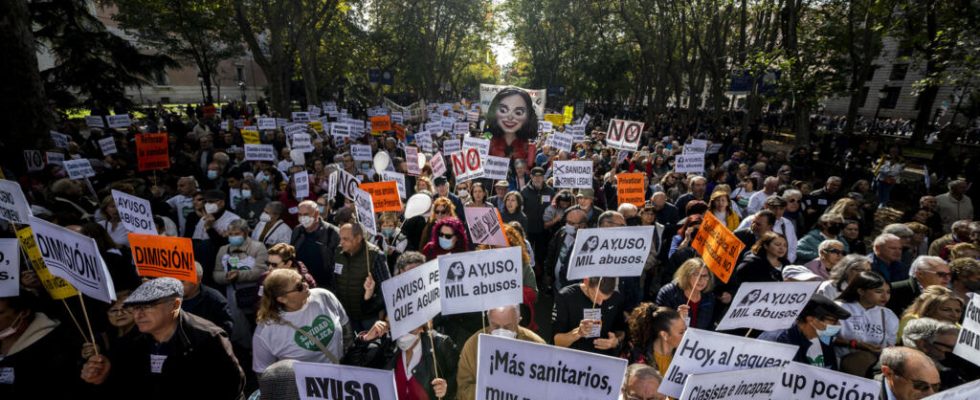In Spain, the shortage of doctors is glaring. According to the College of Physicians, there is a shortage of at least 5,000 family doctors in the country. To remedy the problem, the Ministry of Health regularly increases the numerus clausus, but this remains insufficient.
3 mins
with our correspondent in Spain, Francois Musseau
In 2020-2021, the Ministry of Health opened 6,718 new places in medical schools. In 2021-2022, we increased to 7,290. 7,445 the following year. And for this academic year 2023-2024, there are around 8,500. A constant increase due to a lack of practitioners. There is a shortage of thousands of professionals across the country. The capital, Madrid, Murcia in Andalusia, and rural areas are particularly affected.
But, in this quasi-federal country that is Spain, where most of the health prerogatives are in the hands of the 17 regions, the central power is confronted with local resistance which explains these shortages of doctors. It is the regions which have the purse strings, and therefore they which ultimately really decide the number of additional doctors who will enter into activity.
Read alsoSpain: a “white tide” marches in defense of the health system in the Madrid region
Once qualified, doctors emigrate
However, Spain is the second country in the world, behind South Korea, in number of medical faculties by population density. There are 46 of which 35 are public. The country trains enough doctors, on paper. But once they graduate, they emigrate en masse.
According to the doctors’ magazine, 18,000 doctors have left Spain in ten years, that’s almost 2000 per year. They settle mainly in Switzerland, the United Kingdom, France, Sweden and the Persian Gulf states. In 2022, 4,000 Spanish doctors requested a certificate to practice abroad, only half obtained it. And besides, according to the General Council of Medical Colleges, many complete ten years of study, finish their specialties, and wait before finding a position abroad.
Poor working conditions
One might think that salaries are the main reason for these departures. This is an important reason: many are packing their bags for the United Kingdom or Germany where the emoluments are twice as high. But working conditions are the main reason given to explain departures.
During recent strikes by doctors and nurses, practitioners denounced precariousness. A third of them do not have a fixed place, which forces them to constantly change geographical area. They also and above all denounce impossible schedules and an overload of work that is difficult to bear. Doctors recently told us that they could not give more than six minutes to each patient. The positions eliminated in some regions like Madrid, Catalonia or Andalusia, are not replaced. When a college falls ill or is absent, the doctors present must replace them. At the cost of exhausting efforts.
Also listenIn Spain, a public health system on the brink of the abyss
